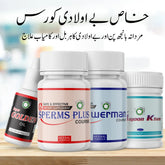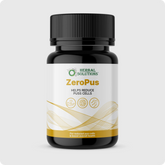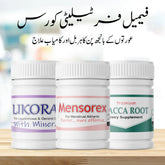Teratozoospermia Causes & Treatment: Expert Guide 2025
Teratozoospermia Causes & Treatment: Your Complete Guide to Improving Male Fertility
Teratozoospermia is a significant male fertility issue that affects countless couples trying to conceive. Understanding teratozoospermia causes and treatment is the first step toward overcoming this condition and achieving your dream of parenthood. This comprehensive guide explores everything you need to know about abnormal sperm morphology and how to address it effectively.
What is Teratozoospermia?
Teratozoospermia occurs when less than 4% of sperm have normal morphology according to WHO standards. The condition is characterized by abnormally shaped sperm that struggle to fertilize an egg naturally. These abnormalities can affect the sperm head, midpiece, or tail, significantly reducing fertility potential.
Primary Teratozoospermia Causes
Understanding the root causes of teratozoospermia is essential for effective treatment:
Genetic Factors
Chromosomal abnormalities and inherited genetic mutations can lead to poor sperm morphology. Men with family histories of fertility issues face higher risks of developing this condition.
Infections and Inflammation
Sexually transmitted infections, chronic prostatitis, and testicular inflammation damage sperm-producing cells. These infections disrupt normal sperm development, leading to morphological defects.
Varicocele
This enlargement of scrotal veins is among the most common reversible causes of teratozoospermia. Varicocele increases testicular temperature and creates oxidative stress, both harmful to sperm formation.
Hormonal Imbalances
Disruptions in testosterone, FSH, LH, or thyroid hormones interfere with healthy sperm production. Proper hormonal balance is crucial for maintaining normal sperm morphology.
Lifestyle Factors
Several lifestyle choices directly impact sperm quality:
- Smoking: Tobacco damages sperm DNA and increases oxidative stress
- Alcohol: Excessive drinking disrupts hormone production
- Obesity: Extra weight causes hormonal imbalances and elevated scrotal temperature
- Poor Diet: Nutritional deficiencies impair sperm development
- Stress: Chronic stress elevates cortisol, affecting testosterone levels
Environmental Exposures
Exposure to toxins, pesticides, heavy metals, and radiation can cause long-term damage to sperm morphology. Men in certain occupations face increased risks.
Age and Medications
Advanced age reduces sperm quality, while certain medications including chemotherapy drugs and antidepressants may negatively affect sperm morphology.
Recognizing Teratozoospermia Symptoms
Teratozoospermia typically has no obvious physical symptoms. The primary indicator is difficulty conceiving after a year of unprotected intercourse. Diagnosis requires a comprehensive semen analysis evaluating sperm concentration, motility, and morphology.
Effective Teratozoospermia Treatment Options
The good news is that teratozoospermia treatment can significantly improve sperm morphology and fertility outcomes.
Lifestyle Modifications
Dietary Changes: Adopt a fertility-boosting diet rich in antioxidants, vitamins, and minerals. Include colorful fruits, vegetables, nuts, fish, and whole grains daily.
Quit Harmful Habits: Eliminate smoking and limit alcohol consumption. These changes can show improvements in sperm quality within 3-6 months.
Exercise Regularly: Moderate physical activity helps maintain healthy weight and hormone levels while reducing stress.
Manage Stress: Practice meditation, yoga, or deep breathing exercises to lower cortisol levels and support reproductive health.
Avoid Heat: Limit hot baths, saunas, and tight clothing that increase scrotal temperature.
Nutritional Supplementation
Key supplements proven to improve sperm morphology include:
- Vitamin C & E: Powerful antioxidants that protect sperm from oxidative damage
- Zinc: Essential for sperm production and development
- Selenium: Supports sperm quality and motility
- Folic Acid: Critical for DNA synthesis
- CoQ10: Enhances cellular energy production
- L-Carnitine: Improves sperm energy metabolism
- Omega-3 Fatty Acids: Support sperm membrane health
Medical Interventions
Infection Treatment: Antibiotics can resolve bacterial infections affecting sperm quality.
Hormone Therapy: Correcting hormonal imbalances through medication can restore normal sperm production.
Varicocele Surgery: Surgical repair often leads to significant improvements in sperm morphology.
Natural and Herbal Solutions
Traditional herbal medicine offers promising results for teratozoospermia treatment:
- Ashwagandha: Reduces stress and improves sperm parameters
- Tribulus Terrestris: Supports healthy testosterone levels
- Maca Root: Enhances fertility and libido naturally
- Ginseng: Promotes overall reproductive function
- Fenugreek: May boost testosterone and sperm quality
At Herbal Solutions, our Special Fertility Course provides a comprehensive, natural approach to teratozoospermia treatment. This program combines time-tested herbal remedies with modern fertility science, offering personalized solutions for improving sperm morphology and overall male reproductive health. Our course addresses the root causes of teratozoospermia through carefully formulated supplements, expert dietary guidance, and practical lifestyle strategies.
Assisted Reproductive Technologies
For severe cases where natural conception remains challenging:
IUI (Intrauterine Insemination): The best quality sperm are directly placed into the uterus during ovulation.
IVF (In Vitro Fertilization): Eggs are fertilized outside the body in a laboratory setting.
ICSI (Intracytoplasmic Sperm Injection): A single sperm is injected directly into an egg, highly effective for severe teratozoospermia.
Treatment Timeline
Remember that sperm production takes 72-90 days. Any teratozoospermia treatment requires at least three months before noticeable improvements appear in semen analysis. Consistency and patience are vital for success.
Prevention Strategies
While not all cases are preventable, you can reduce your risk by:
- Maintaining a balanced diet rich in antioxidants
- Exercising regularly and maintaining healthy weight
- Avoiding tobacco, drugs, and excessive alcohol
- Minimizing exposure to environmental toxins
- Managing stress effectively
- Practicing safe sex to prevent infections
- Wearing loose-fitting underwear
- Having regular medical check-ups
When to Seek Help
Consult a fertility specialist if you've been trying to conceive for over a year without success (or six months if your partner is over 35). Early diagnosis and intervention significantly improve treatment outcomes.
Conclusion
Teratozoospermia causes and treatment options are well understood, and with proper care, most men can improve their sperm morphology significantly. Whether through lifestyle changes, medical interventions, or natural remedies, multiple pathways exist for overcoming this fertility challenge.
At Herbal Solutions, we're committed to helping men achieve optimal reproductive health through our Special Fertility Course. Our holistic approach combines traditional herbal wisdom with evidence-based modern medicine to address teratozoospermia causes and treatment effectively.
Don't let teratozoospermia stand between you and parenthood. With proper diagnosis, appropriate treatment, commitment to healthy lifestyle changes, and the right support, improving your fertility is achievable. Take control of your reproductive health today and start your journey toward building the family you've always wanted.








